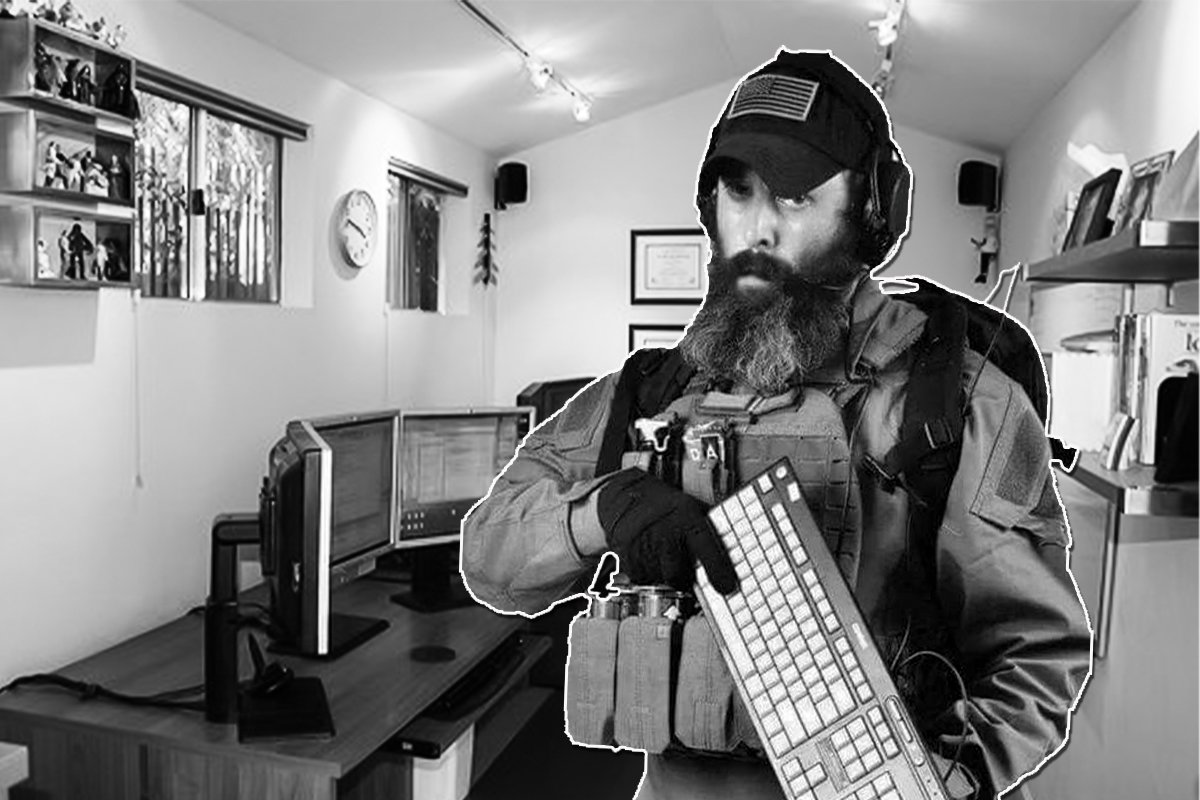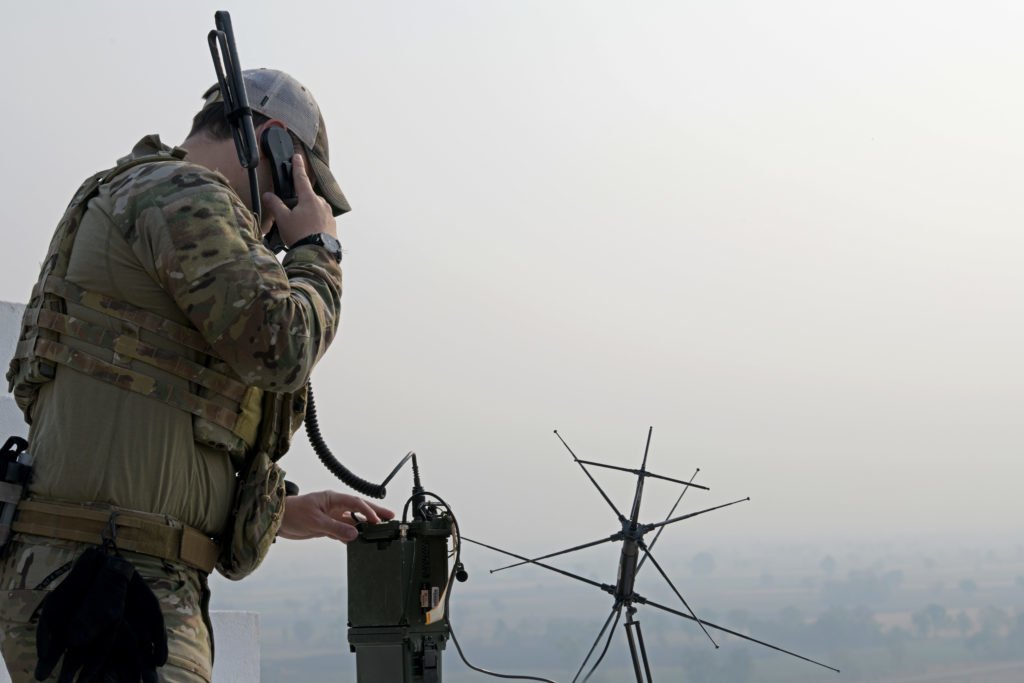
As the COVID-19 pandemic continues to spread, more and more U.S. employees are being volun-told to stay home. For some, that means no work — and no paycheck. For others, that means clocking their hours at the homestead. But “social distancing” from your co-workers, employees, and managers requires honing a few additional skills.
While there is comfort in working from home, it also requires a serious amount of self motivation and initiative. Fortunately for you, everyone here at Coffee or Die works remote, so we’ve got some pre-coronavirus experience to share.
Set up the right workspace. While it sounds nice to toss your laptop on the coffee table and get to work from your couch, that isn’t going to stay effective for long. A desk, some permanent monitors, a notebook at the ready — you probably know what tools you need to be successful at work. Find a corner in your home and make that your office.
There are a number of reasons why you ought to set aside a designated workspace while working remotely. It helps to minimize distractions, you’ll create a physical and mental separation between your work space and your living space, and it lays the foundation for the ever-elusive work/life balance.

Establish a work/life balance. When your office is 10 feet from your bed, it is easy to blur the lines between work and home life. This can have a domino effect: If you’re not differentiating between the two, it can add stress to your relationship with your spouse or kids, which will then have a negative effect on your work. Establish clear boundaries on what your work hours are and when it’s personal time.
This works both ways. If those you live with don’t respect your work time, it can be very difficult to stay on task and concentrate. A common misconception is that those who work from home have unlimited flexibility and can make a grocery run in the middle of the day, take a long lunch, or even take off an entire day and just catch up at night “after the kids go to bed.” Don’t fall into this trap. Remote work is still work, and you need to hold both yourself and those you live with accountable for that. Full disclosure: This is easier said than done. Good luck.
Comms is even more important. They say 70 percent of communication is nonverbal, so you need to compensate for that in phone/text conversations. Also keep in mind that there is a greater potential for miscommunication. Be explicit with your thoughts, intentions, and guidance — don’t trust that your superiors or those in your charge will know exactly what you’re getting at.
That being said, resist the urge to micromanage in lieu of face-to-face leadership. Trust your team to do the right thing, but check in often if things are going a different direction than intended. And don’t be afraid to pick up the phone — a two-minute phone conversation can often be more productive than 10 minutes of back-and-forth texting.
Another way to keep the lines of communication open is to have all your work-related software on your phone (apps, email, Slack, etc.), that way you’ll be alerted even if you step away from your computer.

Check your mental health. When you don’t have face-to-face communication with your team and supervisors, it’s easy to get inside your own head and turn negative. You could interpret a short text or Slack message to read that you aren’t doing something right or even that your job is in jeopardy. The reality might be as simple as the sender being under time constraints and unable to elaborate.
The same can be said for lack of communication. You can start to feel like you aren’t part of the team or that you aren’t “in the know” about things going on. Don’t allow yourself to get into a negative mindset while working remotely — it can easily strain otherwise positive relationships at work and have a negative impact on your daily projects and tasks.
This is where empathy and a positive outlook come into play. Put yourself in the other person’s shoes — try to think about how they are receiving your communication and what they have going on in their lives when communication is sparse. When you assume the best in people, it’s easier to trust your team and trust that your supervisor is looking out for your best interests.
Manage your physical health. Personally, I find myself bouncing between periods of extremely high activity levels and extremely low activity levels. When I’m on the road, it’s not uncommon to end a day completely physically exhausted — and when I’m at home between trips … well, let’s just say there have been 72-hour periods when I unwittingly didn’t change my clothes, shower, or leave my front door.
That’s not healthy.
When working remotely, you don’t necessarily have an incentive to get outside before starting your work day. It’s easy to wake up in the morning, check your phone, see that your little piece of the pie is going up in flames (or so you think), and immediately go from your bed to your computer without so much as a cup of coffee, nevermind a run or hitting the gym.
This is a slippery slope. Not only are you blurring the aforementioned lines between work and home, but you’re not getting out in the sun (lack of vitamin D can have severe yet subtle effects), and you’re not exercising, aka introducing fresh oxygen into your system. There is no shortage of studies that explain the effect that lack of exercise can have on your mental health, creativity, and ability to perform at your peak while working.
If you let that go on for too long (let’s face it, COVID-19 might have us working remote for four to eight weeks at a minimum), you’ll start to gain weight, which will affect your self esteem. This is a spiral that can escalate quickly, so make exercise a priority.
Note: As it pertains to the implications of the current pandemic, you obviously shouldn’t be going to your local gym. Find creative ways to stay fit at home while “social distancing.”
It’s also important to take breaks and walk around frequently. It’s easy to sit for long periods of time, which isn’t good for your circulation, your eyes, or your bladder. Drink lots of water, get up to use the bathroom, stretch your legs, etc.
Be self motivated, take the initiative. I’ll be honest, I think the U.S. Army’s NCO Creed is poorly written and doesn’t lend itself toward memorization, but it does have good advice for the remote worker: “I will exercise initiative by taking appropriate action in the absence of orders.” This is blunt advice: If you want to successfully work remotely, then you need to be self-motivated and comfortable with taking the initiative.
But as in all areas of life, be prepared to take responsibility and explain your actions. Own your decisions and be willing to eat that humble pie from time to time.
Use it to your advantage. There are certain advantages that come with working remotely. It can be less stressful when you’re in a comfortable place, you have the company of your pets and/or loved ones, and you can dip into your snacks or coffee whenever you please.
Also, if you manage your time wisely and avoid distractions, it also affords you the opportunity to get into “the zone.” No co-workers tapping your shoulder, no managers giving you tasks because you happen to be in the room. You can put on your headphones, dive into your work, and knock out task after task.
Quick Hits
List your tasks. If you’re working remotely, you probably don’t have anyone looking over your shoulder, telling you what to do minute-to-minute. Grab a sticky note or create a simple text document, write out each task you need to accomplish as they come up, and knock them off one-by-one.
Learn how to turn it off. Going back to time management and work/life balance — if you know when each task is beginning and ending, you have to know when the work day is ending. The couch might only be a few feet from your office, but in your mind they need to remain miles away. When you’re done for the day, you’re done for the day.
Be aware of time. If your company employs people from across the country, be sure to know ALL time zones of your co-workers or employees. Your 9 AM may be their 6 AM … and your 5 PM may be their 8 PM.

Coffee or Die is Black Rifle Coffee Company’s online lifestyle magazine. Launched in June 2018, the magazine covers a variety of topics that generally focus on the people, places, or things that are interesting, entertaining, or informative to America’s coffee drinkers — often going to dangerous or austere locations to report those stories.
BRCC and Bad Moon Print Press team up for an exclusive, limited-edition T-shirt design!
BRCC partners with Team Room Design for an exclusive T-shirt release!
Thirty Seconds Out has partnered with BRCC for an exclusive shirt design invoking the God of Winter.
Lucas O'Hara of Grizzly Forge has teamed up with BRCC for a badass, exclusive Shirt Club T-shirt design featuring his most popular knife and tiomahawk.
Coffee or Die sits down with one of the graphic designers behind Black Rifle Coffee's signature look and vibe.
Biden will award the Medal of Honor to a Vietnam War Army helicopter pilot who risked his life to save a reconnaissance team from almost certain death.
Ever wonder how much Jack Mandaville would f*ck sh*t up if he went back in time? The American Revolution didn't even see him coming.
A nearly 200-year-old West Point time capsule that at first appeared to yield little more than dust contains hidden treasure, the US Military Academy said.












